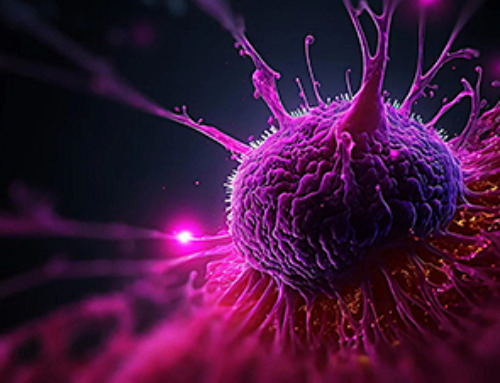A team of experts, including Monash University researchers, has developed a new technique to implement quantum-safe digital signatures twenty times faster, resulting in speedier and safer online transactions than ever before.
The research, published recently in IEEE Transactions on Parallel and Distributed Systems, is the first to develop a much faster way to implement Falcon—a post-quantum digital signature scheme—for graphic processing units (GPUs).
Co-author of the research and quantum-safe cryptography expert, Associate Professor Ron Steinfeld from Monash University’s Faculty of Information Technology, said the world is increasingly moving toward quantum-safe computer systems and Falcon is one of the leading quantum-secure digital signature schemes approved by the the National Institute of Standards and Technology (NIST) in the United States.
“Falcon and other quantum-safe signature schemes are quite detailed and time-consuming algorithms to implement for GPUs,” Associate Professor Steinfeld said.
“Through this research, we have successfully developed new techniques to solve the unique challenges of efficiently implementing Falcon on GPUs, resulting in 20 times faster generation of quantum-secure digital signatures compared to current state-of-the-art CPU implementations.”
First author of the research and parallel implementation expert, Associate Professor Wai-Kong Lee from Universiti Tunku Abdul Rahman, said many researchers have been working on optimizing the practical performance of Falcon since its recent introduction as a NIST standard.
“Falcon is particularly hard to implement on GPUs compared to other NIST standardized signatures, due to its special signing process. This work is the first attempt to fill the research gap and hopes to stimulate more significant breakthroughs in implementing Falcon,” Associate Professor Lee said.
Digital signatures are used widely across all GPUs and computer networks across the world to process and authenticate all types of digital transactions.
One of the research co-authors, Dr. Raymond Zhao from CSIRO, Australia’ national science agency, said governments across the world are moving to standardize computer networks to safeguard against attacks for quantum computers in the future.
“In recent years, with the increased use of computers for various activities including e-commerce, consumption of all forms of media and the use of artificial intelligence, there has been a rising demand for better performing GPUs which typically handle more complex computational processes,” Dr. Zhao said.
Dr. Zhao added that GPUs are usually used where huge amounts of data or transactions need to be processed on a daily basis.
“For example, in the case of e-commerce website Alibaba, we see around 583,000 orders per second during its peak time and online payments typically adopt digital signatures to secure the payments.
Assuming that it conducts two signature verifications for each transaction, in merely one second, the system needs to handle up to 583,000 signature generations and 1,166,000 verifications. This can be a very challenging task if all the signature generation and verification tasks are to be computed using only CPU, even for a very powerful server,” Dr. Zhao explained.
“Accelerated generation of digital signatures would positively impact all online transactions, especially for e-commerce transactions and Internet of Things (IoT) because those applications need to process millions of digital signatures per second on the server side during the peak time.”
More information: Wai-Kong Lee et al, High Throughput Lattice-Based Signatures on GPUs: Comparing Falcon and Mitaka, IEEE Transactions on Parallel and Distributed Systems (2024). DOI: 10.1109/TPDS.2024.3367319
News
Deadly Pancreatic Cancer Found To “Wire Itself” Into the Body’s Nerves
A newly discovered link between pancreatic cancer and neural signaling reveals a promising drug target that slows tumor growth by blocking glutamate uptake. Pancreatic cancer is among the most deadly cancers, and scientists are [...]
This Simple Brain Exercise May Protect Against Dementia for 20 Years
A long-running study following thousands of older adults suggests that a relatively brief period of targeted brain training may have effects that last decades. Starting in the late 1990s, close to 3,000 older adults [...]
Scientists Crack a 50-Year Tissue Mystery With Major Cancer Implications
Researchers have resolved a 50-year-old scientific mystery by identifying the molecular mechanism that allows tissues to regenerate after severe damage. The discovery could help guide future treatments aimed at reducing the risk of cancer [...]
This New Blood Test Can Detect Cancer Before Tumors Appear
A new CRISPR-powered light sensor can detect the faintest whispers of cancer in a single drop of blood. Scientists have created an advanced light-based sensor capable of identifying extremely small amounts of cancer biomarkers [...]
Blindness Breakthrough? This Snail Regrows Eyes in 30 Days
A snail that regrows its eyes may hold the genetic clues to restoring human sight. Human eyes are intricate organs that cannot regrow once damaged. Surprisingly, they share key structural features with the eyes [...]
This Is Why the Same Virus Hits People So Differently
Scientists have mapped how genetics and life experiences leave lasting epigenetic marks on immune cells. The discovery helps explain why people respond so differently to the same infections and could lead to more personalized [...]
Rejuvenating neurons restores learning and memory in mice
EPFL scientists report that briefly switching on three “reprogramming” genes in a small set of memory-trace neurons restored memory in aged mice and in mouse models of Alzheimer’s disease to level of healthy young [...]
New book from Nanoappsmedical Inc. – Global Health Care Equivalency
A new book by Frank Boehm, NanoappsMedical Inc. Founder. This groundbreaking volume explores the vision of a Global Health Care Equivalency (GHCE) system powered by artificial intelligence and quantum computing technologies, operating on secure [...]
New Molecule Blocks Deadliest Brain Cancer at Its Genetic Root
Researchers have identified a molecule that disrupts a critical gene in glioblastoma. Scientists at the UVA Comprehensive Cancer Center say they have found a small molecule that can shut down a gene tied to glioblastoma, a [...]
Scientists Finally Solve a 30-Year-Old Cancer Mystery Hidden in Rye Pollen
Nearly 30 years after rye pollen molecules were shown to slow tumor growth in animals, scientists have finally determined their exact three-dimensional structures. Nearly 30 years ago, researchers noticed something surprising in rye pollen: [...]
NanoMedical Brain/Cloud Interface – Explorations and Implications. A new book from Frank Boehm
New book from Frank Boehm, NanoappsMedical Inc Founder: This book explores the future hypothetical possibility that the cerebral cortex of the human brain might be seamlessly, safely, and securely connected with the Cloud via [...]
How lipid nanoparticles carrying vaccines release their cargo
A study from FAU has shown that lipid nanoparticles restructure their membrane significantly after being absorbed into a cell and ending up in an acidic environment. Vaccines and other medicines are often packed in [...]
New book from NanoappsMedical Inc – Molecular Manufacturing: The Future of Nanomedicine
This book explores the revolutionary potential of atomically precise manufacturing technologies to transform global healthcare, as well as practically every other sector across society. This forward-thinking volume examines how envisaged Factory@Home systems might enable the cost-effective [...]
A Virus Designed in the Lab Could Help Defeat Antibiotic Resistance
Scientists can now design bacteria-killing viruses from DNA, opening a faster path to fighting superbugs. Bacteriophages have been used as treatments for bacterial infections for more than a century. Interest in these viruses is rising [...]
Sleep Deprivation Triggers a Strange Brain Cleanup
When you don’t sleep enough, your brain may clean itself at the exact moment you need it to think. Most people recognize the sensation. After a night of inadequate sleep, staying focused becomes harder [...]
Lab-grown corticospinal neurons offer new models for ALS and spinal injuries
Researchers have developed a way to grow a highly specialized subset of brain nerve cells that are involved in motor neuron disease and damaged in spinal injuries. Their study, published today in eLife as the final [...]





















